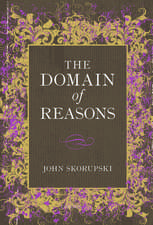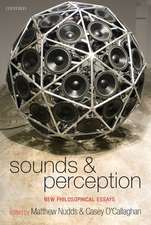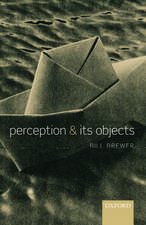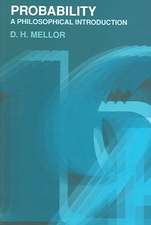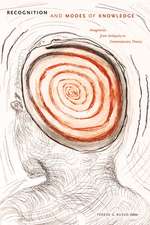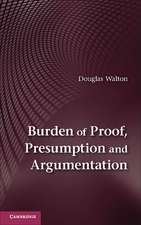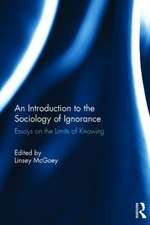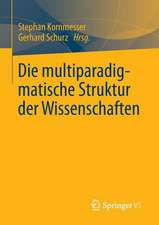Philosophy of Science: A Unified Approach
Autor Gerhard Schurzen Limba Engleză Paperback – 7 noi 2013
Structurally, this comprehensive book offers a two-part approach, which makes it an excellent introduction for students new to the field and a useful resource for more advanced students. Each chapter is divided into two sections. The first section assumes no foreknowledge of the subject introduced, and the second section builds upon the first by bringing into the conversation more advanced, complementary topics.
Definitions, key propositions, examples and figures overview all of the core material. At the end of every chapter there are selected readings and exercises (with solutions at the end of the book). The book also includes a comprehensive bibliography and an index.
| Toate formatele și edițiile | Preț | Express |
|---|---|---|
| Paperback (1) | 455.19 lei 6-8 săpt. | |
| Taylor & Francis – 7 noi 2013 | 455.19 lei 6-8 săpt. | |
| Hardback (1) | 769.92 lei 6-8 săpt. | |
| Taylor & Francis – 14 noi 2013 | 769.92 lei 6-8 săpt. |
Preț: 455.19 lei
Nou
Puncte Express: 683
Preț estimativ în valută:
87.10€ • 90.95$ • 71.92£
87.10€ • 90.95$ • 71.92£
Carte tipărită la comandă
Livrare economică 15-29 aprilie
Preluare comenzi: 021 569.72.76
Specificații
ISBN-13: 9780415829366
ISBN-10: 0415829364
Pagini: 480
Ilustrații: illustrations
Dimensiuni: 152 x 229 x 28 mm
Greutate: 0.59 kg
Ediția:New.
Editura: Taylor & Francis
Colecția Routledge
Locul publicării:Oxford, United Kingdom
ISBN-10: 0415829364
Pagini: 480
Ilustrații: illustrations
Dimensiuni: 152 x 229 x 28 mm
Greutate: 0.59 kg
Ediția:New.
Editura: Taylor & Francis
Colecția Routledge
Locul publicării:Oxford, United Kingdom
Cuprins
Foreword 1 Introduction: Where Do We Stand? 2 The Question of Unity: In Search for Common Foundations of the Sciences 3 The Conceptual Toolkit: Language, Logic and Probability 4 A Question of Fit: Law Hypotheses and their Empirical Testing 5 Going Beyond Experience: Theories and their Empirical Evaluation 6 In Search of Causes: Explanation and All That Goes With It Bibliography Index
Notă biografică
Gerhard Schurz is Professor of Theoretical Philosophy and Director of the Center for Logic and Philosophy of Science at the University of Duesseldorf.
Recenzii
I consider this book to be a unique work both with regard to the sheer amount of material it covers but also with regard to the clarity, depth and insight with which these matters are dealt with by one of Europe’s foremost analytic philosophers. I would not hesitate to use it in an advanced course on the subject, and I believe it would work well also for an introductory course given the careful way in which the book is structured into introductory and advanced material.
Erik J. Olsson, Lund University
Philosophy of Science: a Unified Approach revamps and bolsters the logical empiricist way to think about and to practice philosophy of science. It combines technical precision and rigour with philosophical breadth and depth. It delves into all major philosophical problems and issues in general philosophy of science. It elegantly presents the received positions and approaches, but it also articulates novel views and arguments. It systematically explains the necessary technical concepts and makes them do deep philosophical work. Philosophy of Science: a Unified Approach lives up to its promise to highlight and defend the methodological unity of the sciences. Gerhard Schurz has written a superb introduction to philosophy of science; novices and experts alike have a lot to learn from it.
Stathis Psillos, University of Western Ontario & University of Athens
This is an excellent introduction to the general philosophy of science. It is lucidly written and very well structured in elementary and advanced subsections. Inspired by the classic authors of the 20th century, such as Carnap and Popper, and guided by the methodological version of the idea of the unity of the sciences and the humanities, Gerhard Schurz shows how it stands with the main topics in the first decades of the 21th century.
Theo Kuipers, University of Groningen
Erik J. Olsson, Lund University
Philosophy of Science: a Unified Approach revamps and bolsters the logical empiricist way to think about and to practice philosophy of science. It combines technical precision and rigour with philosophical breadth and depth. It delves into all major philosophical problems and issues in general philosophy of science. It elegantly presents the received positions and approaches, but it also articulates novel views and arguments. It systematically explains the necessary technical concepts and makes them do deep philosophical work. Philosophy of Science: a Unified Approach lives up to its promise to highlight and defend the methodological unity of the sciences. Gerhard Schurz has written a superb introduction to philosophy of science; novices and experts alike have a lot to learn from it.
Stathis Psillos, University of Western Ontario & University of Athens
This is an excellent introduction to the general philosophy of science. It is lucidly written and very well structured in elementary and advanced subsections. Inspired by the classic authors of the 20th century, such as Carnap and Popper, and guided by the methodological version of the idea of the unity of the sciences and the humanities, Gerhard Schurz shows how it stands with the main topics in the first decades of the 21th century.
Theo Kuipers, University of Groningen



